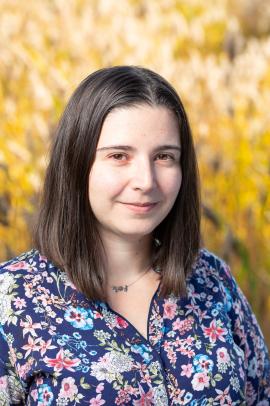Radulescu, Maria Alina
Ministry of Infrastructure and Water Management, the Netherlands
Research Interest
As a doctoral student her research project aims to develop a better understanding of how living labs, as institutional platforms for open innovation, develop and function within governance structures and how they contribute to the development of innovative climate adaptation solutions, especially in the context of waterways. Maria’s research interests lie at the junction of public participation, urban planning, urban design and policy making.
Biography
Maria Alina Radulescu is a PhD student affiliated with the Rijkswaterstaat and the Department of Planning at the University of Groningen. She completed her bachelor studies in Urban Planning and Design at the “Ion Mincu” University of Architecture and Urban Planning, Romania, in 2010. Maria holds a MSc in European Spatial Planning and Environmental Policy from Cardiff University and a MSc in Spatial Planning from Radboud University Nijmegen as a result of graduating the Erasmus Mundus Planet Europe master programme with the thesis “The impacts od second home tourism: a local residents’ perspective. A case study on Cheia, Romania”. Prior to starting her doctorate, she worked for more than 6 years as a planning officer and urban planner on masterplans, land-use plans and planning regulations in Romania.
Project summary
Dutch government is experimenting on a large scale with innovations and creative solutions in the field of smart mobility and sustainability i.e. circular economy in construction, climate adaptability, energy reduction and issues concerning livability. It specifically focusses on finding new solutions for upcoming challenges in mobility, water systems and climate change in close cooperation with relevant stakeholders. One of the challenges is to combine different functions like recreation, water management, nature, culture and mobility in an overall climate adaptive solutions in what is called‘opgavegericht werken’, i.e. looking for smart combinations. Solutions and innovationsare being developed in co-creation with market parties, public authorities, regional and civic society groups. Several methods of social design are and will be tested to involve these parties and to combine challenges. For example, in the field of circular economy and energy living labs are already erected. Experimental projects offers an ideal study ground for social design, integrated landscape design, strategic stakeholder involvement along with other methods of market and civic engagement. Further it offers a learning community for innovation and innovation management and the way this can be combined with societal objectives for climate adaptation and sustainability.
